Iran's Downing of Flight PS752 Was 'Terrorism' - Ontario Court
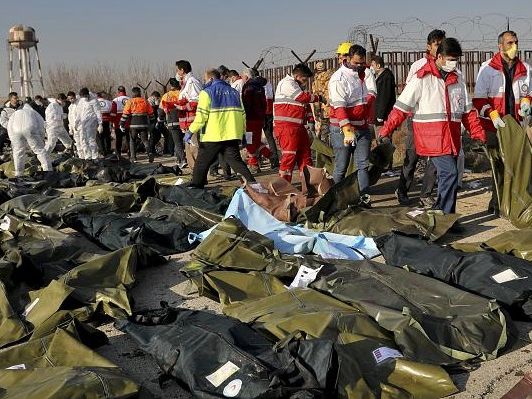
The Ontario Court of Justice once again declared that the shooting down of Flight PS752 by the Iranian regime constitutes "terrorist activity".

The Ontario Court of Justice once again declared that the shooting down of Flight PS752 by the Iranian regime constitutes "terrorist activity".
The court's ruling, issued on Monday, entitles the family plaintiffs of eight PS752 passengers to default judgment on liability, with damages set at $142 million. Each victim's family will receive over $16 million in damages and an additional $1 million for the pain and suffering caused by the tragic attack.
The court case was initiated by six individuals representing eight families of the victims of the flight. Notably, a similar verdict in favor of several other victims' families was previously issued in a case known as “Zarei et al vs Islamic Republic of Iran et al.”
Flight PS752 was shot down by two air-defense missiles fired by the IRGC shortly after taking off from Tehran's Imam Khomeini International Airport on January 8, 2020. The attack occurred in the aftermath of the IRGC's missile strikes on Iraqi bases hosting US troops, conducted in retaliation for the killing of IRGC Quds Force Commander Ghasem Soleimani in a US drone strike just five days earlier.
Tragically, all 176 passengers and crew members, including 63 Canadians, 10 Swedes, and 82 Iranian citizens, lost their lives in the disaster.
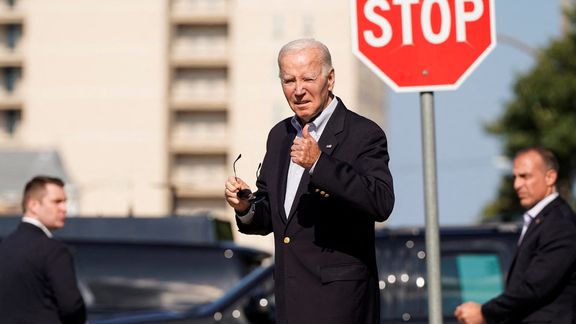
The State Department's internal watchdog has launched an investigation into the circumstances surrounding the suspension of US Iran envoy, Robert Malley.
The Office of Inspector General (OIG), Diana Shaw, launched the investigation in addition to ongoing Federal Bureau of Investigation investigations into Biden’s Iran man, which could lead to a more formal investigation, according to a report by Politico.
Iran International first reported that Malley was suspended from his position as US envoy for Iran on June 29, with his security clearance suspended while he was under investigation relating to his handling of classified documents.
The Involvement of the FBI was also reported, although until now no official details have been announced, except that Malley is on “unpaid leave.”
The suspension had been kept under wraps since it took place on April 22, with Malley given a more limited scope of work before the affair unraveled two months later.
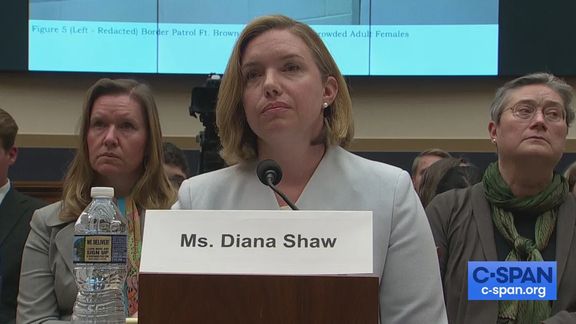
Shaw’s investigation was prompted by the Republicans on the Senate Foreign Relations Committee who raised a host of questions about the State Department and called on her to act.
Confirming the action, which will run alongside the FBI investigation, Shaw wrote to the group: “OIG considers several factors when determining whether to initiate work, including statutory requirements, available resources, our jurisdictional authority, and the existence of criteria against which to measure the department’s actions.
“Considering these factors and the circumstances you detailed in your letter, we plan to begin a preliminary review.”
The Republican Study Committee echoed the calls claiming in a Tweet that Malley had his security clearance suspended for mishandling classified information and that he continued to work without an active clearance.
In a Tweet, the group wrote: “Biden is hoping we aren't paying attention. But we are. We must #InvestigateMalley NOW!”
Like many other Iranians in the US, journalist Karmel Melamed has supported further investigations. He wrote on Twitter: “This whole fiasco with Malley stinks to high hell … He and his mullah regime buddies operating here in America & collaborating together need to be prosecuted for treason against the United States. The lack of accountability for their crimes is shameful.”
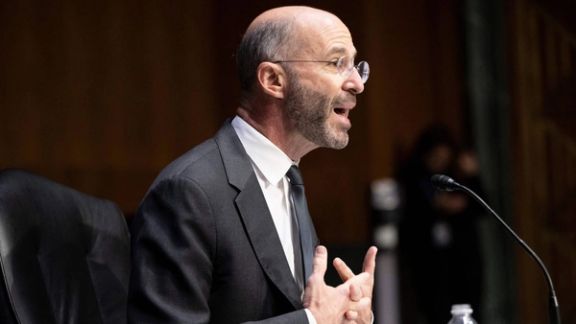
In further revelations of Iran’s deepening US influence, Republicans in Congress have issued a letter to Attorney General Merrick Garland and Director of National Intelligence Avril Haines warning about the influence of Iran's terror ideology in at least four US-based mosques and centers.
According to Fox News Digital, the three-page GOP letter details Iranian regime-linked mosques and centers in Maryland, Texas, Michigan and Virginia. It claims that the Islamic Education Center (IEC) in Potomac, Maryland, secured funding from what it says is the Iranian regime-controlled Alavi Foundation and Washington-based Iranian Iman, Abolfazi Bahram Nahidian.
The letter gives a damning rundown of the centers and their leaders’ links to the regime. “The Iranian regime's attempts to spread malign influence in the United States in multiple Shiite mosques and cultural centers across the country has been happening for years,” it says.
“These state-sponsored mosques preach hatred toward anyone who disagrees with the Iranian regime and go as far as to praise the ayatollah's repressive reign through songs and shrines. It is imperative that the US government understand and respond to the threat posed by state-sponsored terrorism wherever it appears, whether in the Middle East or at home.”
While Biden avoids affirmative action in Iran, even in the face of aggression in the likes of Syria and the Persian Gulf, meanwhile continuing to push for restarting the nuclear talks (JCPOA), the pressure is on, but the question remains, is Biden listening. Revelations of plots to attack US citizens on home soil continue, but the softly-softly approach of the Biden era is wearing thin for Congress.

The US Ambassador to the United Nations has expressed concern over the use of Iranian unmanned aerial vehicles (UAVs) by Russia in Ukraine.
In a briefing on Tuesday, Linda Thomas-Greenfield stated that it is a “direct violation of UN Resolution 2231”. She revealed that Washington has requested the United Nations conduct an investigation into the matter.
In a statement to Iran International, Ambassador Thomas-Greenfield emphasized the significance of the investigation, highlighting that any other instances of Iranian UAVs being used elsewhere should also be condemned as it constitutes a violation of Resolution 2231.
In June, Iran International wrote of the US government disclosures that Russia, with the assistance of the Islamic Republic, is in the process of establishing a UAV production center approximately 960 kilometers east of Moscow. If completed, the factory is expected to significantly alter the dynamics of the war in Ukraine.
According to analysts from the US Defense Intelligence Agency, the establishment of this factory will substantially increase Russia's stockpile of UAVs compared to the previous supplies received from Iran.
As per the analysis conducted by the US Defense Intelligence Agency, Russia has received a total of 400 Shahed-131 and 136, and Mohajer drones from Iran, depleting Iran's stockpile completely.
While Iranian officials, including Ali Khamenei, have denied supplying arms to Russia for use in the Ukrainian conflict, John Kirby, the spokesman for the National Security Council of the White House, made an announcement in early-June that Russia had acquired hundreds of new drones from Iran.
Kirby reiterated that Iran has also facilitated the establishment of the UAV factory in Russia, enabling them to produce Iranian UAVs as early as next year.
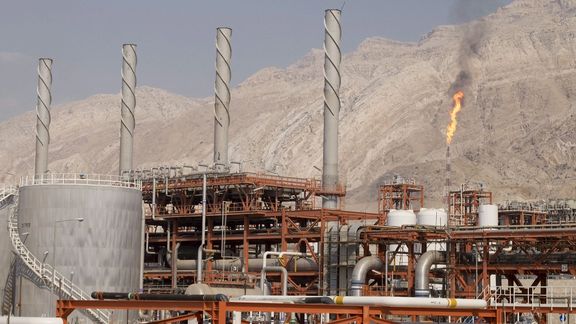
Amid reports of a rise in Iran’s oil exports to China, the regime’s former envoy in Beijing has shed light on Tehran’s mechanisms to collect the revenues.
Mohammad-Hossein Malaek, who served as Tehran’s envoy for four years under former president Mohammad Khatami, told the Iranian Labour News Agency on Tuesday that China’s purchase of Iranian oil never stopped no matter the status of US and international sanctions on the Islamic Republic.
“China has a principled and consistent approach to its relations with Iran, and for about 10 to 15 years, both when Iran was under sanctions and when they were removed, China has been importing an average of 600,000 barrels of oil per day from Iran,” he said.
However, he explained that Beijing was supposed to open credit lines for Iran, but it never did due to the sanctions. Malaek did not elaborate if these “low-cost credits” were supposed to be earmarked for Chinese products or the regime would have been able to use them on international markets.
No matter how many buyers or how much trade Iran manages to secure for its exports, Iran faces serious obstacles in bringing in the revenues and money transfers due to banking sanctions, the former envoy highlighted.
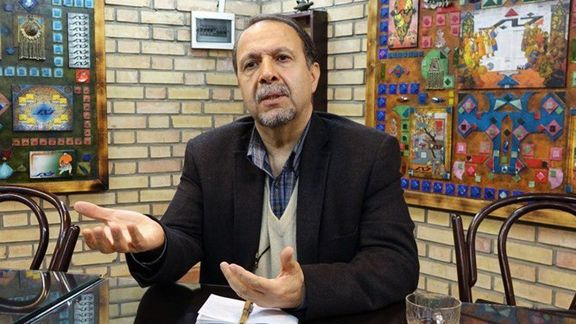
His remarks came as head of the Iran-China friendship association Allaedin Boroujerdi said Monday, “Necessary agreements have been made between the central banks of the two countries, and we do not have the problem of blocking Iran's money and assets in China, like we have in South Korea.”
While China has a diversified oil supply portfolio that has seen Iran contributing over one million barrels per day in some periods, the lion’s share of China’s daily import of 10 million barrels are from Russia and Saudi Arabia.
He did not explain how exactly Iran is receiving money from China but there are several known methods that have been used in the past, including a barter system and China’s investment in Iran’s development projects. “There is an annual exchange of $15-16 billion worth of goods with the Chinese, some through banking channels and some through barter," Malaek said.
In 2020, Iran and China quietly drafted a sweeping economic and security partnership that would potentially clear the way for billions of dollars of Chinese investments in Iran’s energy and other sectors, undercutting the Donald Trump White House efforts to isolate the regime over its nuclear and military ambitions. Then-foreign-minister Mohammad Javad Zarif and his Chinese counterpart Wang Yi signed the controversial 25-year deal at a ceremony at the Iranian Foreign Ministry in Tehran in March 2021. The deal was first proposed by Iran's Supreme Leader Ali Khamenei during President Xi Jinping’s visit to Tehran in 2016.
The pact has been controversial in Iran because its details have never been disclosed. According to a copy of the draft obtained by The New York Times, the 18-page agreement detailed $400 billion of Chinese investments in banking, telecommunications, ports, railways and dozens of other projects. In exchange, China would receive a regular and heavily discounted supply of Iranian oil for the following 25 years.
Although Iran has not revealed the details of the agreement with China and what it will entail in political, economic and military terms, it has caused resentment from Iranians who claim the Islamic Republic is "selling out the country and its people" to China and Russia.
While oil has been trading at around 75-82 dollars in the past several months, Iran International reported in December that Tehran provides huge discounts to China, charging as little as $37 per barrel. A report by The Wall Street Journal in July said Iran is exporting the highest amount of crude oil in five years, but it offers discounts of up to $30 per barrel.
Kpler, a data and analytics firm, said in its latest report last week that Iran’s oil shipments to China have more than tripled over the past three years despite the US sanctions. Based on the data, Iranian crude exports to its major trade partner have been hovering around one million barrels per day in 2023, up from roughly 325,000 bpd in 2020 and just 160,000 bpd in August 2019, in the wake of tightened US sanctions.
Also in January, the US Energy Information Administration (EIA) put Iran’s average oil production in 2022 at 2.54 million bpd. According to energy consultant SVB International earlier this year, Iran’s crude exports in December averaged 1.137 million barrels per day, up 42,000 bpd from November and the highest 2022 figure SVB has reported based on earlier estimates.
Iran needs around $50 billion from oil exports to balance its flailing budget, but estimates say actual annual proceeds are around $25 billion. Another reason for Iran’s oil revenues being probably less than $25 billion is the costs involved in illicit shipments to evade sanctions, and losing money in trying to repatriate the money in hard currencies. Iran’s banking system is also under US sanctions and any oil revenues are laundered through intermediaries.
The main question that remains unanswered is how all these oil revenues are spent when inflation is still soaring, national currency is on a nosedive and Iranians are getting poorer every day with no prospect of bouncing back in sight.
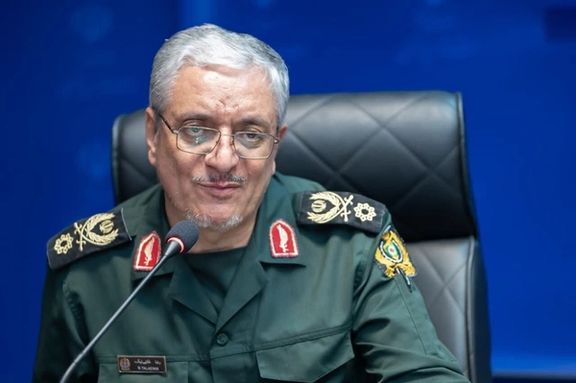
An Iranian defense ministry official has issued a threat to the US amidst its rising military presence in the Persian Gulf.
Referring to Iran's latest long-range missile, which has a range of 1,000 kilometers, Reza Talaei-Nik, the Spokesman of the Ministry of Defense, said: "The enemies should move away from the country's coasts within the range of the Abu Mahdi missile, and those who intend to create insecurity in the region should change their mind."
Thousands of Marines backed by advanced US fighter jets and warships are building up a greater presence in the Persian Gulf in the face of Iran's harassment of commercial vessels in the Persian Gulf.
The dispatch of the troop-and- the USS Bataan expeditionary unit to the region, alongside stealth F-35 fighters and other warplanes, has put the regime on the back foot.
Talaei-Nik warned that those who want to pose a threat should withdraw beyond the 1000-kilometer range of Abu Mahdi sea cruise missiles that "can evade radar."
The Abu Mahdi missile, made in Iran, can reach the entire Persian Gulf Sea, the Sea of Oman, and a portion of the Indian Ocean, according to Talaei-Nik.
Earlier Iran’s Defense Minister, Mohammad Reza Ashtiani hailed the addition of the Abu Mahdi missile to Iran's naval fleet claiming that the missile system's advanced artificial intelligence capabilities enables it to adeptly evade radar systems.
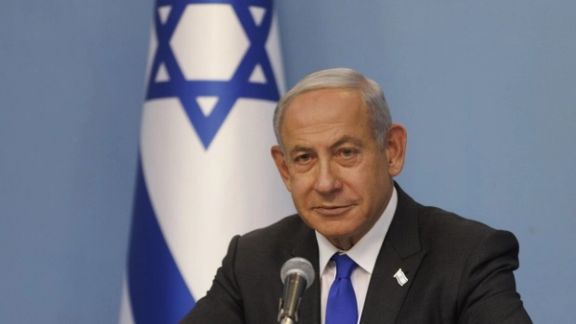
Israeli Prime Minister Benjamin Netanyahu reaffirmed Israel's Iran strategy despite Biden's recent nuclear deal efforts.
In an interview with Newsmax on Monday, he reiterated his policy on Iran, its most dangerous enemy in the Middle East, and said he will not be deterred by the Biden administration's efforts to restart a nuclear deal with Iran.
"Israel will do what it needs to do to defend itself by itself against the threat of Iran to annihilate it with nuclear weapons," Netanyahu told Rob Schmitt Tonight.
The Biden administration has been striving to bring the United States back into the Joint Comprehensive Plan of Action (JCPOA), a deal that was previously abandoned under the Trump administration. Talks are also said to be addressing the release of some of the US citizens detained in Iran and unfreezing some Iranian assets. It has been met with fierce opposition on both sides of Congress and since the latest talks began in June, maritime tensions continue between the two arch-enemies in the Persian Gulf.
Netanyahu said of the ongoing US talks: "I think that any deal with Iran that doesn't set back Iran's nuclear infrastructure is basically not worth it because it means nothing ... They basically take what you give them, but they don't set back. They don't roll back the capacity to produce nuclear weapons or the components of nuclear weapons. So, you really get nothing for it. And my view hasn't changed."